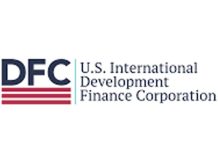Wealthy Nigerians earning over N100 million per month may soon be taxed at a 25 per cent rate if a new bill proposed by the Presidential Fiscal Policy and Tax Reforms Committee is passed by the National Assembly.
The Committee Chairman, Taiwo Oyedele, said this move is part of a broader effort to create a more equitable tax system.
Speaking during a breakout session at the 30th Nigeria Economic Summit in Abuja on Monday, Oyedele revealed that the reforms would shift the tax burden towards the wealthiest citizens, while offering relief to lower and middle-income earners.
He pointed out that nearly 90 per cent of those currently paying taxes should not be, under the proposed system.
“We are targeting those who earn N100 million or more monthly, and they will be taxed up to 25 per cent. The aim is to balance the books and ensure those with the ability to pay are doing so fairly,” Oyedele explained.
The tax reforms, slated to take effect in January 2025, also propose a reduction in personal income tax for middle-income earners making N1.5 million or less per month. Those earning more will see gradual tax increases, with the wealthiest facing the highest rates. Lower-income earners would be completely exempt from personal income tax under the new structure.
In addition to addressing personal income taxes, the reforms include significant relief for businesses. Oyedele highlighted that businesses currently bear the cost of VAT on assets such as factories, vehicles, and equipment, which increases their operational costs and, in turn, raises prices for consumers.
Under the proposed changes, businesses will be able to claim full VAT credits on assets and services, thereby lowering their expenses and stabilising their pricing.
“This is a significant change for businesses,” Oyedele noted. “Today, companies are burdened with VAT on essential investments, which ultimately drives up their costs. Our reforms aim to change that, making it easier for businesses to thrive.”
The corporate income tax rate is also set to drop from 30 per cent to 25 per cent, a move Oyedele described as a “huge” boost for the business sector. Essential goods and services—such as food, healthcare, education, accommodation, and transportation—would benefit from reduced or eliminated VAT, easing the financial strain on households, particularly lower-income families.
However, Oyedele cautioned that not all sectors would benefit from reduced taxes. VAT on other goods and services would increase to help the government maintain revenue levels.
Addressing the broader economic context, Oyedele acknowledged that inflation had already acted as an informal tax, reducing the purchasing power of Nigerians without any formal legislation.
He emphasised that the committee’s reforms aim to redistribute the tax burden more fairly, targeting those most capable of contributing to the country’s revenue.
Regarding tax incentives, Oyedele was firm in his stance that excessive incentives have hurt the economy. He noted that removing unnecessary incentives would be a key part of the reforms, ensuring the government doesn’t lose revenue while making the business environment fairer.
“We can’t give out every incentive being requested, our priority is to remove harmful incentives, and that’s exactly what we are doing.” He concluded.













